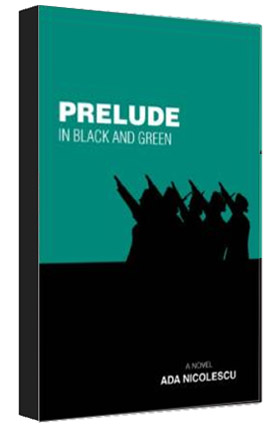Q & A
I wanted people to know what happened before the holocaust. Many know what happened at Auschwitz and Treblinka in the big concentration camps, but they don’t know what happened in the years preceding the holocaust. In talking to people since I’m here in the free world, I realized that they did not understand the circumstances that existed in Europe before the war.
People in Europe could not imagine what was going to happen. Who would have thought that someone would have tried to kill all the Jews in the world? Nevertheless, there has always been the question of why the Jews in Europe didn’t leave earlier to protect themselves. The assumption has been that they must have known the holocaust was coming, but the fact is they really had no way of knowing what was going to happen. The information they got was often conflicting and confusing.
There were many factors that influenced the decision to stay, the most significant being the social structure of the family at that time. Families stayed together. Not only did the immediate family live together, but the extended family as well. There was no such thing as people leaving by themselves without their family if they didn’t think there was imminent danger. If, in fact, the situation was dangerous, the question became not so much whether to stay together, but where to go? Emigration was quite different then.
Still, it has been difficult for some people to understand why so many Jews in Europe chose not to leave their homes. Even some who left said to those who stayed behind ‘you asked for it.” When people have asked me at what point I left Romania, and they hear 1961—and that I lived through the whole Hitler period and the Communist period—their reaction invariably has been “Why? Why didn’t you leave? Why was it later, not earlier?”
It was to help answer these questions that I decided to write this book.
What do you see as the book’s key themes?
The growing anti-Semitism in Romania encompasses a number of other themes that come up repeatedly throughout the book. One of these themes, tradition vs. industrialization for example, had serious implications for anti-Semitism, because the difference between them exacerbated the cultural difference between the Jews and the Romanians.
The issue of tradition vs. industrialization, you see, had deep roots in the country’s history. Romania was basically an agricultural country, and all agricultural countries are extremely traditional. Towards the middle of the 19th century after many years under Turkish domination [the Ottoman Empire], Romania decided it wanted to become more industrialized, to be more a part of Western Europe. Oil was discovered, making it the only country in Europe to have oil at that time. To further the country’s goal, the government did two things: One was to import a German king, Prince Karl von Hohenzollern-Sigmaringen who was a member of the royal families of Europe. The other was to take steps to become part of the industrial and commercial world of Europe. This was facilitated by importing Jews from the Russian Pale (the Western part of Russia) who weren’t allowed to live in the cities of Russia or to have land. Denied the right to be farmers, many Jews in the Pale had become small artisans (tailors,cobblers,carpenters, watchmakers, etc.) merchants with small shops, pawnbrokers or money lenders. Romania invited these Jews in by promising them more rights then they had in Russia.
Ultimately this led to most of Romania’s banking and commerce industry being founded by Jews. The “new arrivals” with their business know-how, books, and new language [they spoke Yiddish] were totally different from the country’s peasants, who were illiterate, ignorant and very conservative. For native Romanians, suddenly exposed to these people, there was culture shock to the nth degree.
It was inevitable. They were going to clash.
What do you want people to take away from this book?
People have heard a lot about what happened in the years before the ghettos in Czechoslovakia, Poland, Germany and Hungary, where there were tremendous differences between countries—even between different cities in the same country. I want people to be aware of a story about which little is known—why in Romania, so many Jews chose to stay behind.
I witnessed the situation first-hand. By relating the story of one family, it is my wish that readers will come to better understand why many Jews did not take a more active role. It is my hope that throwing some light on the situation will help people clear up some long-standing misconceptions about this key period in our history.

